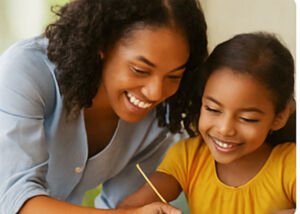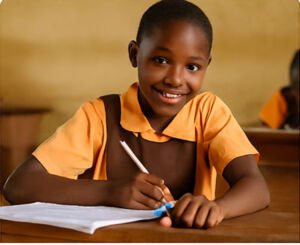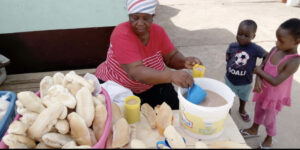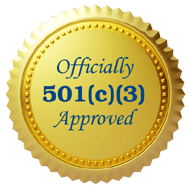INTRODUCTION
The world has made progress in gender equality through the Millennium Development Goals. Women and girls continue to experience discrimination and violence in every part of the world. Gender equality is a fundamental human right and a necessary condition for a prosperous, sustainable, and peaceful world. Ensuring women have equal access to education and decent work will promote sustainable economies that benefit societies. About two-thirds of countries in developing regions have achieved gender parity in primary education. NUMBERS AND FACTS- In 1990, in South Asia, only 74 girls were enrolled in elementary school per 100 boys. In 2012, enrollment rates were the same for girls and boys. Girls still face barriers to accessing primary and secondary schooling in sub-Saharan Africa. In North Africa, women hold less than one-fifth of paid jobs in non-agricultural sectors. The proportion of women in paid jobs has increased from 35 percent in 1990 to 41 percent in 2015. In 46 countries, women hold more than 30 percent of seats in national parliaments in at least one chamber.
INCLUSION
In a community, there is no development without inclusion. A hypothesis that is as true as it is universal: that is, addressed to those outside the society (such as foreign nationals), but also to all its internal segments. The most glaring example of lack of inclusion in the world concerns persistent gender inequality: serious, when not in principle, if only in practical terms, given that the problem affects about half of the world’s population and every country. In 2019, World Bank data attested to the female population at 49.6 percent out of a total population in the world of more than 7.6 billion people: a figure, by the way, in decline from previous years. With about 50 percent women across the continent, Africa reflects the world situation: an essential presence in quantitative and qualitative terms, which Africa, like the rest of the world, cannot ignore. Many times, freedom also lies only in the ability to conceive of being able to do a sure thing, to know that one has the opportunity to imagine alternatives. According to data from the Gender Gap World Economic Forum 2021, the criteria for determining the state of gender relations, and thus the degree of women’s empowerment, are essentially four: political participation, access to health and medical facilities, job placement, and education. Here we will try to understand the state of gender equality in Africa.
PROBLEM
The African Union has dubbed the decade 2010-2020 “the decade of African women” because almost all African countries have ratified the Convention on the Elimination of All Forms of Discrimination against Women. More than half of the states have ratified the Protocol on the Rights of African Women. According to data compiled in the World Economic Forum’s latest Global Gender Gap report, gender equality in Africa will not be achieved until 121.7 years, a sharp deterioration from the 2020 forecast, when the estimate was around 95 years. Instead, it would appear that progress will be slow for the Middle East and North Africa region, and it will take 142.4 years to close the gender gap and achieve gender equality in Africa. The adverse effects of the pandemic are evident in several areas: from increasing domestic violence, limited access to health facilities and services, and a worsening economic situation. Working for the achievement of gender equality in Africa means setting as a goal women’s empowerment, the emancipation of women and girls, and the need to guarantee them the freedom and opportunity to decide what to do with their lives. Therefore, achieving equality between men and women would lie in attaining and ensuring equal levels of independence.
COSTA D AVORIO
Côte d’Ivoire reports a government statement, scoring 95 in the “Women, Business and the Law 2023” report compared to 83.1. Ivory Coast thus ranks among the best countries in the subregion and even the world regarding equal treatment of women before the law. The government has taken measures to combat domestic violence and lift restrictions on women’s employment. Côte d’Ivoire and Gabon are the only countries in sub-Saharan Africa to score above 90. This result is encouraging as the World Bank reports a loss of momentum for reforms that hold back economic growth. Sub-Saharan Africa has made significant progress in the past year, with more than half of the reforms recorded globally in 2022. Côte d’Ivoire scored 100 on the entrepreneurship indicator by banning any credit access discrimination. The keeper of the Seals, Minister of Justice and Human Rights, Sansan Kambilé, who attended the presentation of this report, recalled the Ivorian government’s commitment to ensuring women’s protection and full development. He noted that the country had implemented several reforms in women’s entrepreneurship, marriage, and remuneration.
VIOLENCE AND EDUCATION
Gender equality is one of the Millennium Development Goals. Much must be done, especially in the world’s poorest countries. In Africa, for example, women are systematically denied their fundamental rights. VIOLENCE The condition of women in Africa is characterized by sexual abuse and gender-based violence. It is commonplace, especially in the continent’s poorest countries. Women in countries such as Chad, Côte d’Ivoire, Ghana, and Kenya experience violence at home and in society. In some of these countries, the Civil Code does not provide for the crime of rape. The situation worsens in countries battered by civil war or religious conflict. EDUCATION is one of the areas where gender inequality is most clearly manifested. About 750 million adults and 617 million children and youth worldwide cannot read or write. Two-thirds of these are women, young people, and adults. It is discrimination that begins from the time they are children. Indeed, staying home to help with household chores often falls to them. Moreover, the girls must face long walks to procure water for the family.
LABOR AND MATERNAL MORTALITY
LABOR Among the rights denied to women is often the right to work. Even when granted to them, it is always an underpaid, degrading piece where their rights are constantly trampled upon. Many women do not have the opportunity to engage in work other than those related to the domestic sphere. This is vulnerable employment. The most significant gender disparities are in North Africa and sub-Saharan Africa. MATERNAL MORTALITY: Sub-Saharan Africa has a dismal maternal mortality record. This is where two-thirds of all deaths occur during childbirth. Nowhere else in the world does the problem of maternal mortality manifest itself in such a severe form. This is the way it is about conditions for women in Africa. We fight daily to remedy this situation and eradicate the causes that lead to such gender inequality. And to achieve this, you also need your help, which you can give through long-distance adoption.






